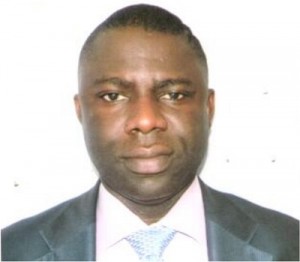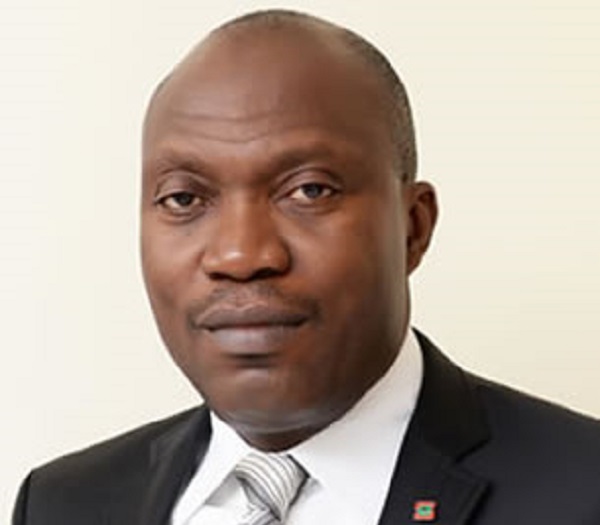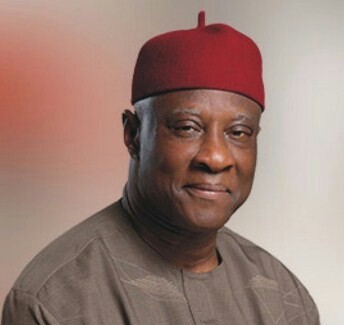I CARE INTERVIEW
Government Should Develop Maritime To Cushion Oil Sector Decline – Talabi

Turbulence in the oil sector has led to investors selling shares of energy-related companies as oil price continues to tumble. Oil trading companies and analysts are perplexed by the intensity of the decline, coming after the Dec. 4 meeting of the Organization of Petroleum Exporting Countries who all but abandoned its price support for crude as oil prices has been falling for more than a year now.
In this exclusive interview with Ifeoma Oguamanam of MMS Plus Weekly, the Group Head of Business Development of Japaul Oil and Maritime Services Plc., Mr. Talabi Abayomi gives his take on the issues in the energy sector as it concerns the maritime industry and other issues. Excerpts.
How has the global fall in oil prices affected companies in the oil servicing sub-sector?
The Global fall really caused the sector a lot of loss of fortune amounting to trillions of dollars. It is a chain reaction, as long as the oil sector is affected, the sub-sector business(es) and companies that are dependent on the sector will equally be affected as long as they provide services to the oil industry and that is what has just happened. For as long as the fall sustains companies will have to source alternative means to moderate the effects to avoid liquidation.
That is why companies are laying off workers in their numbers. This is not in Nigeria alone it is a global a problem that can only be resolved internationally.
Is there any hope of seeing the price of oil rise in the nearest future and what are the conditions that could lead to this rise?
We hope the price will increase though it continues to plummet, but the increase may not be immediate. However, the following conditions will play a vital role in the increment in the oil price. Political stability at the global level spearheaded by the United Nations, Regulation of oil production via alternative energy sources, shale oil in particular and the increase in demand of the product as a result of new technologies powered by oil and its by products.
Has there been a change in the trend of ship owners in Nigeria having to go outside to other neighboring countries to repair their ships, what can be done to stop this movement?
There are lots of ships being repaired outside Nigeria. The government can only stop this when there is a policy in place that will favour investors in this sector with encouragements and incentives. So far there has been little or no government involvement in the regulation of ship repair in Nigeria. Their focus is on the naval shipyard only, the Naval shipyard cannot satisfy the demand for ship repairs and maintenance in Nigeria. Government needs to pay attention to this area of the maritime sector because it has what it takes to provide jobs on a massive scale.
What are the impediments of ship building in Nigeria?
The major impediments can be traced to lack of support from the government in terms of infrastructural development, the infrastructures needed for ship building can be developed here because we have the maritime environment to support it but the persistent absence of government presence in the ship building industry remains one of the reason for the reluctance by foreign investors to invest in the development of ship building in Nigeria. Other factors impeding ship building in Nigeria are, policies and implementation, financing impediment, lack of adequate knowledge and understanding of the industry by financial institution, non-interest of local banks in long term financing, exchange risks etc.
Are the ships that are built in Nigeria owned by Nigerians or by foreigners?
There are no ships built in Nigeria, except ferries and light boats, but talking about large carriers or Offshore Supply Vessels (OSVs). None! Not even one. This is regrettable for a country like Nigeria that has steel as one of the raw materials that can easily be sourced locally. We also do not have adequate manpower development in the area of professional know-how on how to develop ship building in Nigeria.
The government should invest more in capacity development through its agencies or set up an independent agency that will be engaged solely with the development of man power for the maritime industry if we are to bridge the gap. The maritime industry if well developed in Nigeria can form the bedrock of the economy of the nation now that the oil and gas industry is on the decline.
What in your opinion can be done to increase indigenous ownership?
Looking at the ship repairs and building sector, it is capital intensive, our policies should be able to give room for or give reduced taxes to encourage investment and the government should also encourage investors with supports from the banks. The Cabotage tax can be ploughed back for this purpose. That is, the 3 percent tax paid by ship owners as stipulated under the Cabotage Act can be deployed to encourage indigenous ownership of vessels.
How much impact do you think banks have made to the industry in terms of ease of access to loans for ship building?
No substantial impact. Now that the Single Treasury Account (TSA) is in place banks will have no other choice than to find other sources of raising capital. Nigerian Banks needs to appreciate the fact that in other more developed countries, banks take risks to finance maritime projects, so they need to start doing that here, they need to identify maritime companies that are credible that they can work with, develop credit facilities that are flexible for maritime businesses and gradually build confidence in the industry. The maritime in Nigeria is largely an untapped terrain and banks stand to gain a lot if only they will come out of their shells.
Government authorities have at different fora said that the draft at Nigerian berths is 13.5mtrs but terminal operators have denied this, claiming that very big vessels cannot berth side by side at their key side. What is your take on this?
Most of the berths are silted; government needs to carry out maintenance dredging around the berths and the channels too. The government should take conscious steps and actions to engage the services of qualified surveying consultants to substantiate their claims, the findings from such investigation should then be published for the public and industry use. It is not enough to make claims that cannot be verified, it is only when they publish their activities that they can be said to be transparent.
In maritime operations especially in the area of construction, what are the limitations of building infrastructure for the maritime industry?
Inadequate funding, lack of favourable policies; most government policies these days do not encourage private participation in the industry and the government is not forthcoming in providing infrastructure, government needs to revisit some of these harsh and stringent policies that have not contributed anything to the development of the sector rather it has continued to encourage corruption in the system. Lack of qualified manpower and technology in the country are also major limitations.






